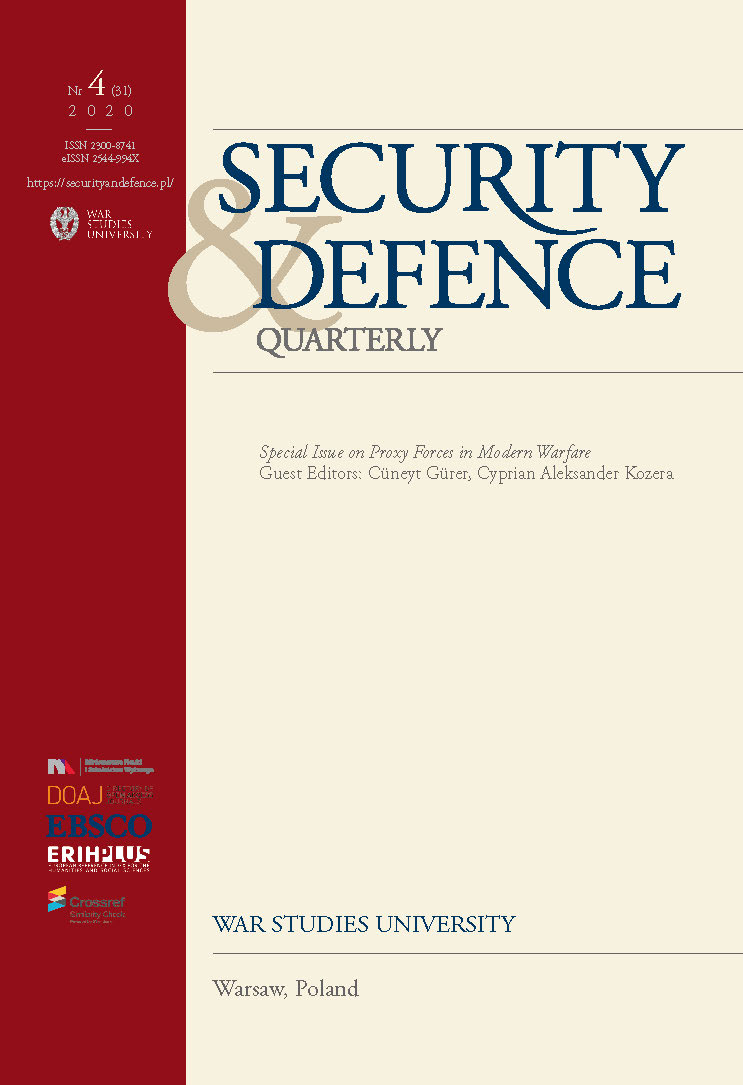Towards a structural understanding of powerbrokers in weak states: From militias to alliances
Towards a structural understanding of powerbrokers in weak states: From militias to alliances
Author(s): Sascha BruchmannSubject(s): Political behavior, Geopolitics, Peace and Conflict Studies
Published by: Akademia Sztuki Wojennej
Keywords: powerbroker;militia;balance of threat;alliance;anarchy
Summary/Abstract: This article aims to contribute to a theoretical understanding and discussion of conflict in weak states. More granular than one at the level of systemic phenomena, this analysis is focused on the actors, and the political structure in weak states. The article aims to improve on efforts to accurately describe these conflicts. After a theoretical introduction, the theorem on powerbroker systems will be applied on the case studies of Afghanistan, Lebanon and Mali. Building on this, the contours of the political system in each case will be highlighted by looking at the very origins of socio-political life. The working hypothesis is that powerbrokers, built on self-governing communities, ally and bandwagon according to Balance of Threat (BoT). This working hypothesis will be tested by examining a derived hypotheses per case study and identifying a) self-rule communities, b) the political-military nexus of powerbrokers within each system, and c) the behaviour of the related BoT alliance. Afghan, Lebanese and Malian powerbrokers all confirm the hypotheses. The powerbrokers originate in a context of self-governing communities trying to maintain their internal autonomy vis-a-vis a more centralised state and world system. During conflict, the communities band together against a perceived external threat, building neo-feudal political-military bodies. Pooling military resources under skilled leadership and privileged access to outside sponsors sparks the birth of a post-conflict politicalmilitary elite. It is beneficial to maintain powerbrokers as they are better suited to distribute resources through patronage at scale. Powerbroker alliances in weak states can be well explained by a theoretical approach based on balance of threat and more research is needed.
Journal: Security and Defence Quarterly
- Issue Year: 31/2020
- Issue No: 4
- Page Range: 53-75
- Page Count: 22
- Language: English

